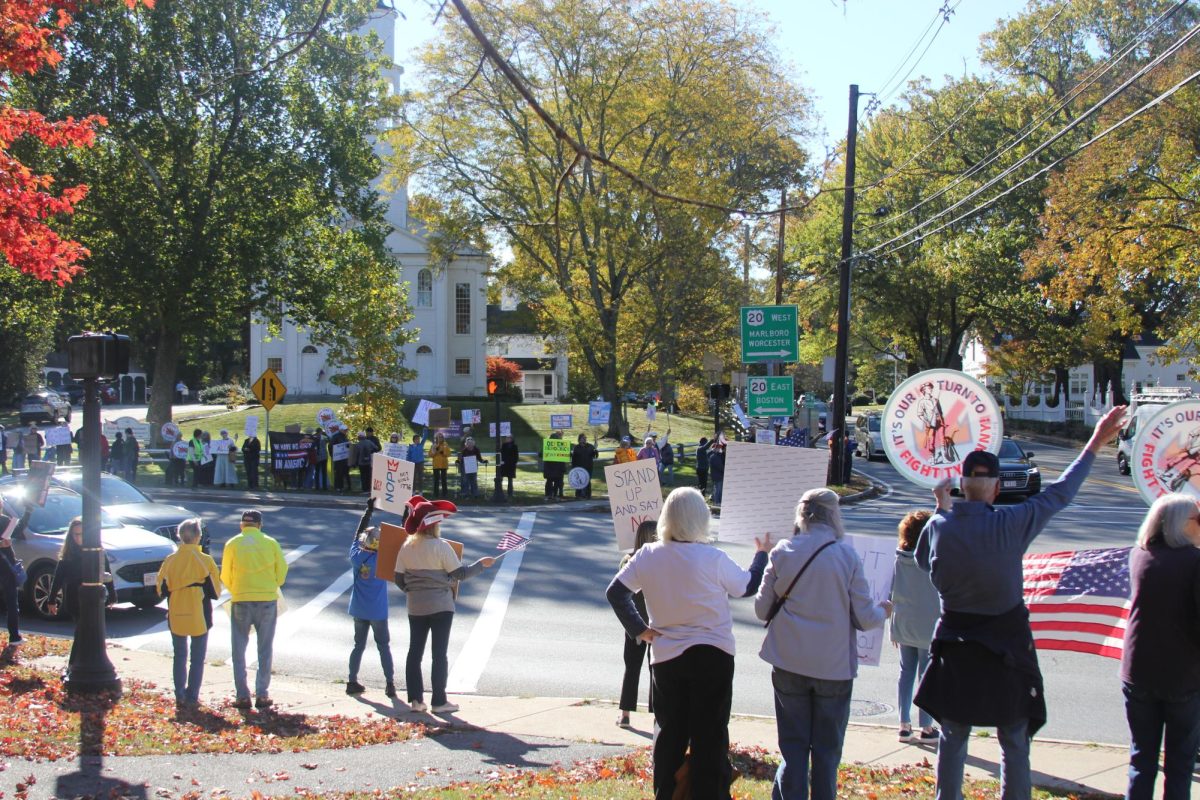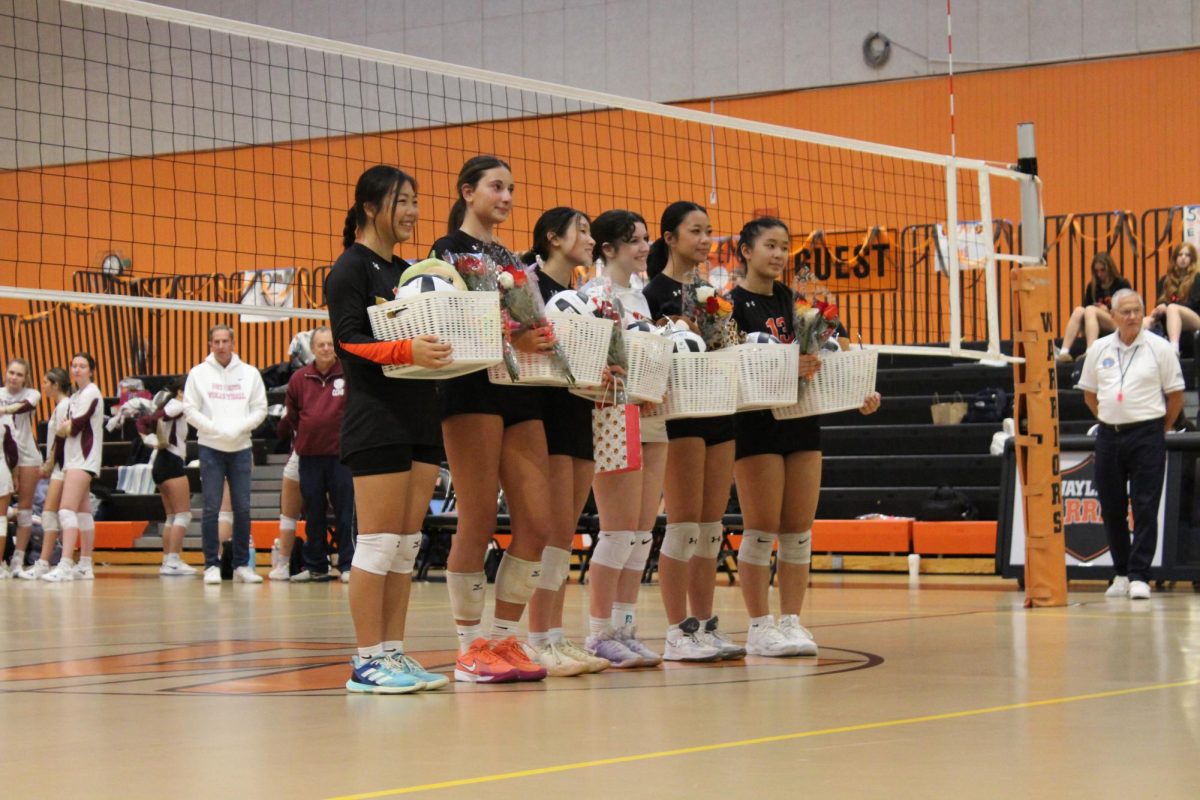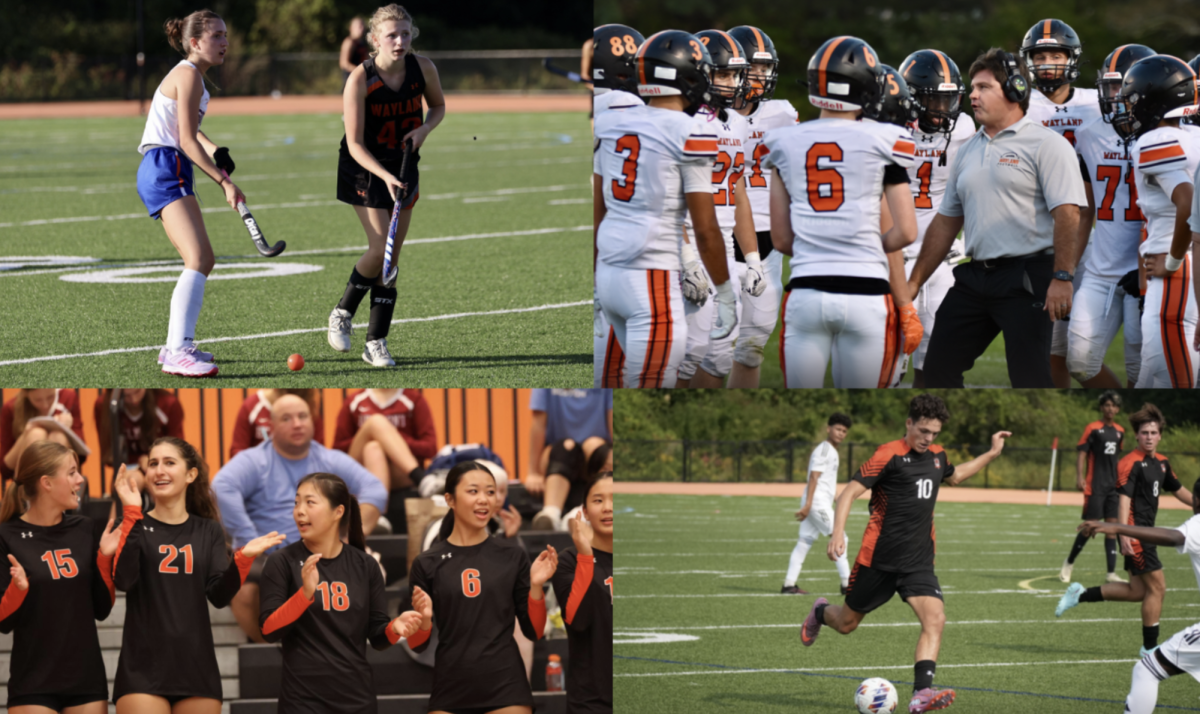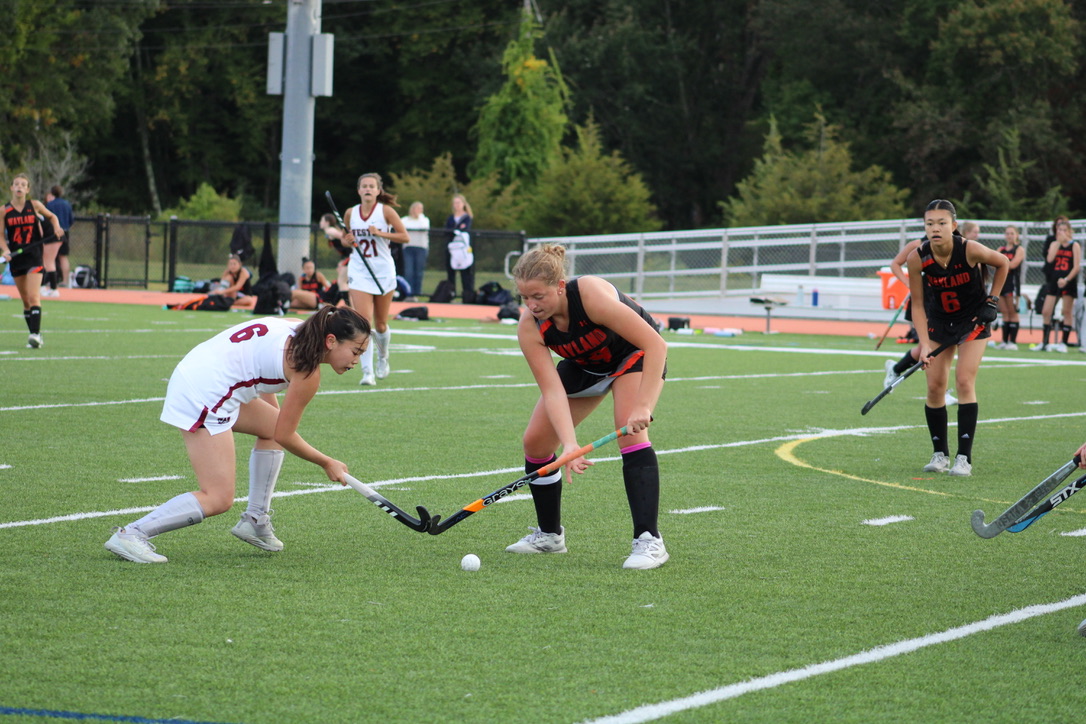WMS Racism: The ongoing journey of anti-racist work
Credit: Tess Alongi
Members of the Wayland community, including students, parents and teachers, gather to peacefully protest the racist incidents that occurred at Wayland Middle School. “The purpose [of the rallies] wasn’t to vilify the actions of the wrongdoers, but instead, this was about supporting children, families and educators of color who were really hurt and felt unsafe,” WMS parent and rally organizer Meg Flatley said. “We wanted to let them know that the actions of a few do not represent us all in this community.”
January 22, 2022
Over the course of the past month, three racist incidents have occurred at Wayland Middle School. From WMS administration, to members of the Wayland community, the shared anger and disappointment has led to the work of preventing future racist occurrences in Wayland, and helping students of color feel safe during this time.
After multiple racist events, WMS administration continues to work on creating safe spaces for students to process and reflect through affinity groups, TAG opportunities and other activities that reaffirm WMS’ anti-racist beliefs. Additionally, WMS administrators met with Wayland’s Director of Diversity, Equity and Belonging, the METCO Director, METCO coordinators and members of the Anti-Bias Anti-Racist (ABAR) team to further the professional development work for staff, and they plan to create workshop pieces for students surrounding responses to racism.
WMS also implemented bathroom monitors due to racist graffiti being written in an eighth grade bathroom. The bathroom monitors are meant to prevent anything from being written on the bathroom walls, but as of now, the bathrooms are being watched more sporadically and infrequently.
Several WMS students felt particularly disheartened to see such hate displayed within their school. However, some believe that the school could have responded to the racism in a better way as a few of the responses left students feeling uncomfortable in their learning environment.
“It makes me upset that people in my school don’t take racism seriously and would say something like that to hurt someone else,” an anonymous middle schooler said. “At the same time, I think that the teachers monitoring and taking the doors off of the bathrooms is unnecessary. It makes me feel uncomfortable and like I can’t use the bathroom at school.”
On the community level, there were three parent-organized rallies that occurred outside of the WMS building as a response to the incidents. WMS parent Meg Flatley was one of many who felt enraged and saddened by the events, and she decided to take action and offer her support by organizing two peaceful rallies.
“The purpose [of the rallies] wasn’t to vilify the actions of the wrongdoers, but instead, this was about supporting children, families and educators of color who were really hurt and felt unsafe,” Flatley said. “We wanted to let [Wayland students and families of color] know that the actions of a few do not represent us all in this community, and we also wanted to let them know that we don’t stand for [racism]. We wanted kids [of color] to know that we are a part of your community and we want you to feel safe and happy at school.”
In the weeks after the racist occurrences, WMS Principal Betsy Gavron has noticed improvements in students’ behavior. However, she believes that combatting racism is long-term work that involves an ongoing commitment and dedication.
“I think people have stopped and done some gut checking and thinking,” Gavron said. “I think there have been conversations in schools and at home where people are addressing some of the issues more directly and really trying to think about the way comments impact others. We talk a lot about intent versus impact and being more mindful of the impacts our words and our actions have with one another.”
Nevertheless, Gavron, along with numerous other WMS faculty members, students and families are committed to the work of combatting racism within the district of Wayland.
“When anybody in our community is hurting, it impacts everyone in our community,” Gavron said. “We [want to] consistently make [WMS] a welcoming space for all students to be their authentic selves each and every day. We need to continue to work on [making] environments that allow for that, and make space to know each other well, so we can appreciate the wonderful range of identities that everybody comes to the table with.”
Wayland Director of Diversity, Equity and Belonging, Caroline Han, believes that white families can easily walk through life without having to think of racial inequalities or microaggressions. Because of that, it is crucial for white families to expose their children to diversity.
“I really believe that in order to combat hate, bias, racist comments, microaggressions and those things of any kind, it’s very important for parents or caregivers to start talking [to their children about racism],” Han said. “It’s so important for [parents and caregivers] to develop the comfort level and the racial literacy to have those conversations with their children.”
Han also believes that exposure to other cultures helps mitigate racist ideology, and it’s important that families venture out of Wayland.
“[Also, to make sure] that [families are] going places where they will be in the racial minority and hear different languages and see people with different skin colors because you can imagine, in Wayland, you can live a pretty racially isolated upbringing,” Han said.
Flatley agrees with Han’s suggestion for white families to have developmentally appropriate conversations with their kids about racism, and she has been doing so with her own children. But in order to have these important conversations, it is important that information surrounding these incidents is released in a timely manner.
“I think it’s really important for parents to be able to support their kids in understanding and mitigating these incidents after they happen, but to do that we have to know what happened,” Flatley said. “I understand there are certain privacy implementations, but with that being said, we should at least be able to know the facts about what happened in order to be able to talk to our kids and help them do better as a response the next day.”
In addition to having conversations about racism, Han advises white community members to speak up against racism and discrimination. Han reminds white people that if they remain silent, it is harmful for people of color as the burden falls on them to have to speak up instead.
“It is okay to have different points of views and different opinions about a range of political, economic and social issues, but when it comes to anti-bias anti-racist treatment, policies and practices, that’s really non-negotiable,” Han said. “If we as a district don’t take a stand against racism and other forms of oppression, we are not protecting, and we are not creating a school where every person feels like they belong. That sense of community benefits all students because I really believe that the legacy of racism in this country harms white people too.”
Finally, Han sends a reminder that the work of eradicating racism is not the work of one person, but it is rather a collective community responsibility. Racism is not something that can be eliminated quickly and easily through only her work as Director of Diversity, Equity and Belonging, and there will not be significant change unless a wide variety of people are committed to working against racism together.
“Anti-bias, anti-racist work is not a destination, it’s a journey, and it requires ongoing self interrogation and self reflection,” Han said. “Being a good person and treating people with kindness does not eradicate racism. There are systems, policies and practices that perpetuate racial inequalities. People think ‘I’m going to raise my kids to be good people,’ and that’s just not enough.”



























![Members of the Wayland community, including students, parents and teachers, gather to peacefully protest the racist incidents that occurred at Wayland Middle School. “The purpose [of the rallies] wasn’t to vilify the actions of the wrongdoers, but instead, this was about supporting children, families and educators of color who were really hurt and felt unsafe,” WMS parent and rally organizer Meg Flatley said. “We wanted to let them know that the actions of a few do not represent us all in this community.”](https://waylandstudentpress.com/wp-content/uploads/2021/12/Screen-Shot-2021-12-10-at-8.53.47-AM-1-900x657.png)

Nora Rothschild • Jan 24, 2022 at 7:57 AM
Thank you for writing and sharing this article. As a white parent in the WPS system, it is very helpful to me.